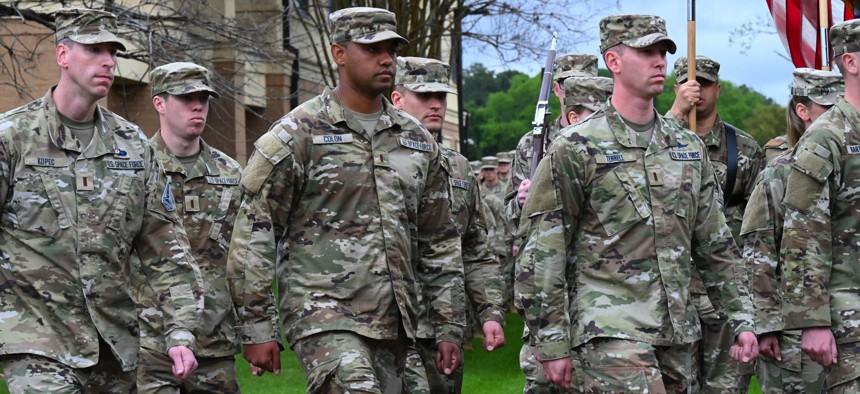In the vast skies above, the U.S. Air Force has long been a symbol of strength, courage, and innovation. However, as the world around us continues to evolve, there is a growing consensus that the culture within the Air Force is in need of a reboot. From outdated practices to systemic issues, it is clear that a transformation is necessary for this esteemed institution to thrive in the modern era. Join us as we explore the challenges facing the U.S. Air Force culture and the potential solutions that could lead to a brighter future.
Outdated Traditionalism vs Modernization in the U.S. Air Force
The clash between outdated traditionalism and the push for modernization within the U.S. Air Force has become a growing concern in recent years. While the military branch prides itself on its rich history and longstanding traditions, there is a growing recognition that in order to remain effective and competitive in the 21st century, it must embrace modern practices and technologies.
One of the key areas where this divide is most apparent is in the realm of technology. With rapid advancements in areas such as artificial intelligence, drone technology, and cyber warfare, the Air Force is being forced to evolve and adapt at a pace that is often at odds with its traditionalist roots. It is clear that in order to maintain its status as an elite fighting force, the U.S. Air Force must find a way to strike a balance between honoring its heritage and embracing the future.
Embracing Diversity: A Key Component of Cultural Reform
The U.S. Air Force culture is in need of a significant overhaul to better reflect the values of diversity and inclusivity. Embracing diversity is essential in creating a more cohesive and effective military force that can adapt to an ever-changing global landscape. By recognizing and celebrating the unique perspectives and backgrounds of all individuals within the Air Force, we can foster a culture of respect and understanding that will lead to increased morale and productivity.
It is crucial for the Air Force to prioritize diversity and inclusion initiatives, such as implementing training programs on unconscious bias and cultural sensitivity. Additionally, leadership must actively support and promote diversity at all levels of the organization, ensuring that all airmen feel valued and empowered to contribute their diverse perspectives. By embracing diversity as a key component of cultural reform, the U.S. Air Force can become a more inclusive and effective fighting force that is better equipped to meet the challenges of the 21st century.
Enhancing Mental Health Support for Airmen
The U.S. Air Force culture has long been known for its commitment to excellence and dedication to duty. However, when it comes to mental health support for Airmen, there is a need for a reboot. It is essential to prioritize the mental well-being of our service members to ensure they are receiving the support they need to thrive both on and off duty.
By enhancing mental health support programs within the Air Force, we can create a healthier and more resilient force. This can be achieved through increased access to counseling services, destigmatizing seeking help for mental health issues, and promoting a culture of open communication and support. It is crucial to invest in the mental health of our Airmen to ensure they are equipped to handle the demands of their roles effectively.
Fostering Innovation and Adaptability for Future Success
In order for the U.S. Air Force to thrive in the rapidly evolving landscape of modern warfare, a cultural shift is imperative. Embracing a mindset of innovation and adaptability is crucial for ensuring future success. By fostering a culture that values creativity, experimentation, and flexibility, the Air Force can position itself as a leader in military strategy and technology.
Encouraging collaboration across different units and ranks, **empowering** individuals to take calculated risks, and **embracing** new ideas are all essential components of this cultural reboot. By breaking down traditional hierarchical structures and promoting a culture of continuous learning and improvement, the Air Force can better equip its members to navigate the complexities of modern warfare with agility and effectiveness.
To Wrap It Up
it is evident that the U.S. Air Force culture is in need of a reboot. By addressing issues such as toxic leadership, lack of diversity, and outdated traditions, the Air Force can strive towards a more inclusive and effective organization. It is essential for the future success of the Air Force to embrace change and foster a culture that values diversity, innovation, and equality. By taking proactive measures to address these issues, the Air Force can ensure that it remains a powerful and respected force in the world for years to come. Let’s work together to create a better future for the U.S. Air Force.
